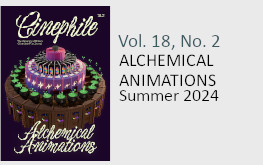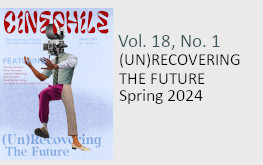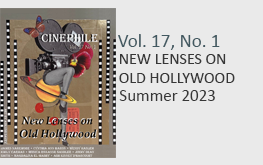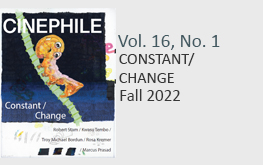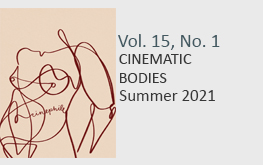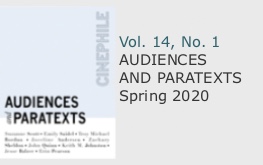Cinephile 18.2: CALL FOR PAPERS
Cinephile 18.2 — Alchemical Animations
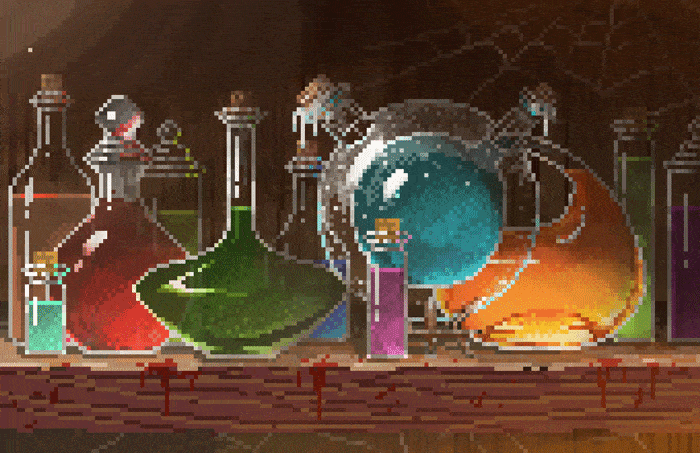
“Forbidden Creatures” by maskman626
Deadline for paper AND video essay submissions extended to April 26th
Cinephile’s Summer Issue 18.2 is calling for papers and video essays on the alchemical potential of animated media works: that is, the creative, generative, transformative processes through which animation artists and video-game designers reimagine the media’s form, aesthetic, and cross-cultural linkages.
With several smaller animation productions gaining commercial success (Ne Zha (China, 2019), Wolfwalkers (Ireland, 2020), Nimona (US, 2023) etc.) it becomes clear that film audiences are increasingly charmed by a range of diverse animated works beyond blockbuster fare. Paired with an expanding body of alternative, independent television series (Helluva Boss (2020-), Scissor Seven (2018-), The Midnight Gospel (2020) etc.) these works continue to push the capabilities of the medium across cultural and conventional aesthetics.
There is much to explore within the history and lineages of animation: the early work of the Fleischer brothers (Koko the Clown, Betty Boop, Popeye…) and their reinforcement of varying gender roles, reductive personas and ideologies; the blatant colonial and at times racist legacies of Walt Disney’s animations (Song of the South, Peter Pan, Pocahontas…); the invoking of soft power through national artforms like ink wash calligraphy or animé; or, the agency and structures of power surrounding animation institutions (incl. companies working in video game design); the environmental impact of 3D animation; the tensions between hand-drawn and CGI animation in traditional media storytelling… Drawing on Hamid Naficy’s notes on ‘accented’ cinema, we are especially invested in the works of diasporic and racialised writers and creators in animation. Oft marginalised or forgotten, the experimental works of queer, transnational, and accented artists are quickly transcending mainstream barriers to entry through other social media platforms like TikTok, Vimeo, Twitch and YouTube.
Applicants are encouraged to engage with the aforementioned ideas and themes, but all submissions that explore the aspects of animation’s creation, production, consumption, or reception are welcome.
Other possible topics may include (but are not limited to) the following:
- Animation theory and interdisciplinary approaches to animation studies;
- Independent animation and video game production/design;
- ‘Accented’ and exilic filmmaking, incl. narrative or non-fiction (e.g. Breadwinner 2017; Flee 2021);
- Discussions of national style, transnational influences, or cross-cultural works;
- The histories and ongoing legacies (either helpful or harmful) of specific films, corporations, and animators/ writers/ creators;
- Animation fandom culture (fanfiction, recreations, comics, conventions, art/prints, merchandise, zines, etc);
- Animation series that evolve with their audiences (e.g., Adventure Time 2010-18 and Adventure Time: Fionna and Cake 2023);
- Queer-coding and/or queer expression in animation (e.g., Heaven Official’s Blessing (Tian Guan Ci Fu, 2020—), Nimona 2023, The Grandmaster of Demonic Cultivation (Mo Dao Zu Shi, 2018—2021), Steven Universe 2013-19);
- Social and/or technological developments in animation, AI intervention in animation and its accompanying ethical questions;
- Issues of censorship and/or the toxic work environments of animation production companies
We encourage submissions from graduate students, postdoctoral researchers, and established scholars. Papers should be between 2000-3500 words, follow MLA guidelines, and include a detailed works cited page. Video essays should stay within the range of 8-20 minutes, and formatted as a shareable link through either YouTube or Vimeo.
Submissions should be directed toward SUBMISSIONS@CINEPHILE.CA and general inquiries toward INFO@CINEPHILE.CA. Please additionally include a short (50-word) biography of the author. Deadline for all submissions extended to April 26th.
…
Cinephile is the University of British Columbia’s film journal, published with the continued support of the Centre for Cinema Studies. Cinephile and UBC Vancouver are located on the traditional, ancestral, and unceded territory of the Musqueam, Squamish, and Tsleil-Waututh Nations of the Coast Salish peoples. Caring for this land since time immemorial, the culture, history, and traditions of the Coast Salish people are inextricable with these regions and enduring in these spaces. Cinephile acknowledges its identity as a product of settler violence and colonization and is committed to learning and engaging with Indigenous voices and histories on the UBC campus.
Previous issues have featured original essays by such noted scholars as Lee Edelman, Slavoj Žižek, Paul Wells, Murray Pomerance, Ivone Marguiles, Matt Hills, Barry Keith Grant, K.J. Donnelly, Robert Stam, and Sarah Kozloff. Since 2009, the journal has adopted a blind review process and has moved to annual publication. It is available both online and in print via subscription and selected retailers.
Co-editors: Jade Courchesne, David Wu, Jenny Yang

